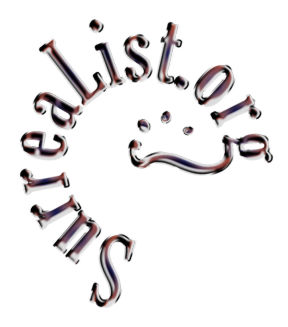
Hexagram Twenty-seven—Nourishment
Hexagram Twenty-seven signifies nourishment, or enhancing the self by taking in things that will produce energy and vitality. There is a caution against stealing other's energy and trying to use it for oneself.
The first line, yang, shows one who turns away from their own center of abundance and wisdom, symbolized by an auspicious tortoise. Doing this, the person can only stare at others with a jaw gaping in envy. This behavior will never result in happiness.
The second line, yin, shows one who looks upward and downward for nourishment, but looks away from the center. It is better to nourish oneself, than look to others.
The third line, yin, shows one refusing to look after their own nourishment. Whatever else this person attempts will be unsuccessful, even if done with sincerity. They may as well do nothing for ten years, because no good will come from this lack of nourishment.
The fourth line, yin, shows one who watches the ground with the unwavering stare of a tiger. This person will find the proper nourishment and will accomplish their goals.
The fifth line, yin, shows one lacking proper nourishment, who can barely manage their affairs. It is a weak position to begin new projects.
The sixth line, yang, shows one who provides nourishment to others. Despite the danger, going forward with a new endeavor will bring the desired results.
Hexagram Twenty-seven Commentary
This hexagram speaks of nourishment and where to find it. Nourishment may refer to food or any number of basic needs, like the ability say no to people when necessary. Or it may refer to exercising, avoiding addictions, getting out, making friends, developing hobbies and interests, getting enough sleep, or any number of things we do to take care of ourselves. The introduction calls nourishment "taking in things that will produce energy and vitality." The pitfalls are either stealing other people's energy or refusing to take care of one's own needs.
The first line, yang, shows a person with a tortoise that symbolizes their center of abundance and wisdom. However, this person has turned away from their own center and stares enviously at others. The line warns, this person will never be happy as long as this goes on.
The second line, yin, shows a person who looks up and down, but will not look at the center. This is another mistake. The line warns, "It is better to nourish oneself, than look to others." Even if this person does not envy what others have, they would be wrong to expect others to automatically know what they need and provide it.
The third line, yin, shows a person who refuses to look after their own needs. The line admonishes a person like this and says people who refuse to take care of themselves, may as well do nothing for ten years, because "no good will come from this lack of nourishment."
The fourth line, yin, shows a person who defends their right to nourishment. The metaphor is of "one who watches the ground with the unwavering stare of a tiger." This is the level of seriousness it takes.
The fifth line, yin, shows a person in a weak position. Lacking proper nutrition, this person can only temporarily manage their affairs. When hard times come, this person may be caught off guard.
If someone lacks nourishment, then it's good to help out. The sixth line, yang, shows a person who provides nourishment to others. Even though such generous people risk getting used, the line says it's a positive attitude, especially for entering new situations, or starting new endeavors. If a generous person can inspire others to take better care of themselves, it's a great gift.
To the reader: Most of the hexagrams have at least one line that predicts bad results, but that does NOT mean you are fated to that result. The hexagrams illustrate different attitudes, so study the actions and reactions to learn the attitudes that will lead to better outcomes.
The I Ching teaches you to flow with changes and create positive change from the inside through conscious living. Your future is in your hands. Consult the I Ching for ideas that lead to clear thinking and positive mental attitude. Reading the I Ching helps you take the time to reflect on your attitudes and ideas. Continue asking until you feel positive about your course.

Click here for another hexagram.
A note about this interpretation of the I Ching: Nori Muster wrote this version of the I Ching in 1994 and put it online at Surrealist.org in 2000. It is also available at Amazon:
e-book
paperback
